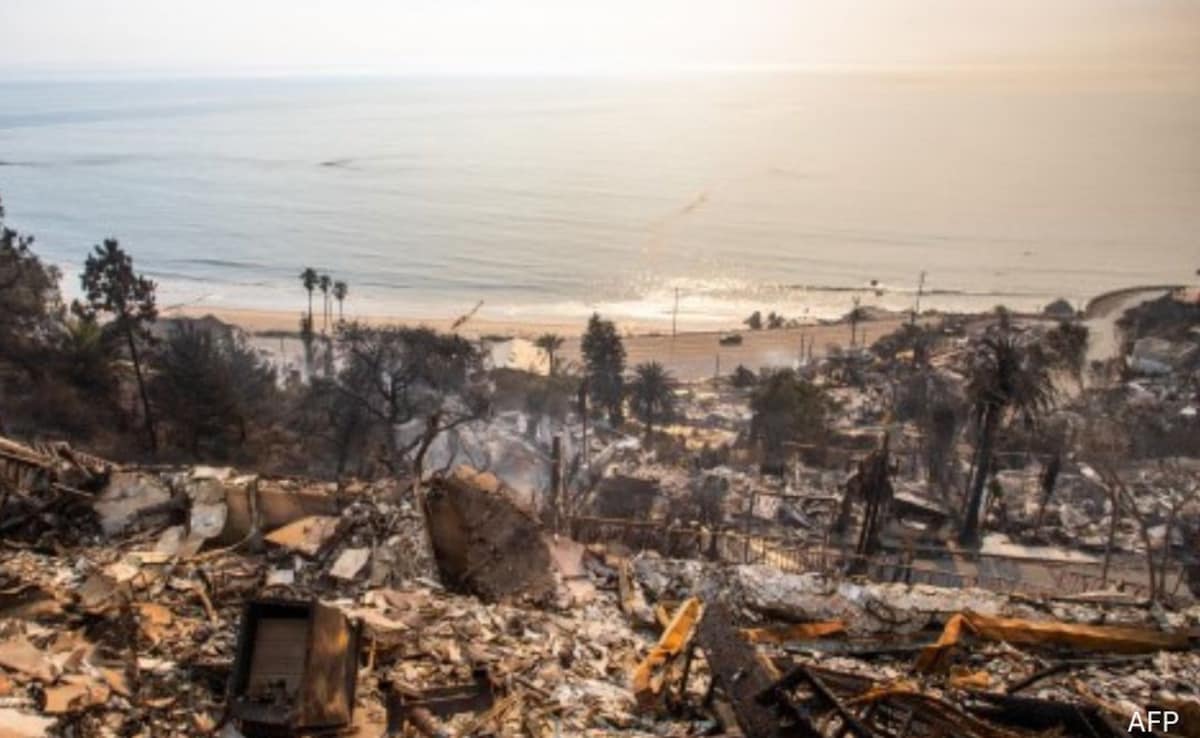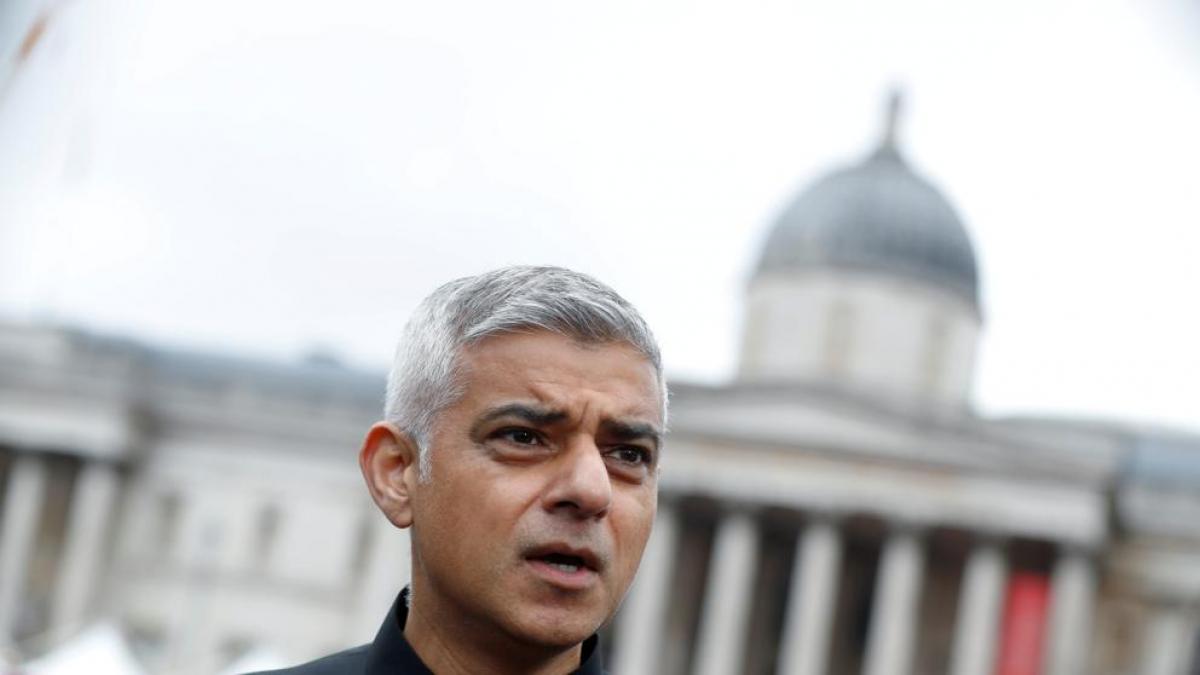Gambling On Catastrophe: The Case Of Betting On The Los Angeles Wildfires

Table of Contents
The Ethics of Disaster Betting
Profiting from Suffering: The very notion of profiting from the suffering and loss caused by a wildfire is morally reprehensible. Betting on the Los Angeles Wildfires, or any natural disaster, inherently involves placing a monetary value on human tragedy and environmental destruction.
- Exploiting vulnerable populations: Those most affected by wildfires – the displaced, the injured, and those who have lost loved ones – are the least equipped to comprehend or counteract the financial speculation that occurs around their misfortune.
- Insensitivity and disregard: The act of betting on a wildfire demonstrates a profound lack of empathy and disregard for the human cost. It normalizes the trivialization of suffering for personal gain.
- Exacerbating inequalities: The ability to bet on such events often favors those with financial resources, further widening the gap between the wealthy and those most vulnerable to natural disasters.
The Role of Prediction Markets: The emergence of online prediction markets has facilitated the ease and accessibility of betting on natural disasters, including wildfires. While these markets can potentially provide valuable information, their role in the context of disaster betting is deeply troubling.
- Lack of transparency and regulation: Many prediction markets operate with minimal oversight, lacking the transparency and regulatory frameworks needed to prevent manipulation and ensure fair play.
- Potential for manipulation and misinformation: The inherent complexity of wildfire prediction, coupled with the potential for manipulating data or spreading misinformation, creates a breeding ground for unethical practices.
- Influence on emergency response: The focus on financial speculation rather than community support could negatively impact emergency response and resource allocation. The pursuit of profit might overshadow the urgent need for humanitarian aid and effective disaster management.
The Practical Challenges of Wildfire Prediction
Inherent Uncertainty: Accurately predicting the behavior of wildfires is incredibly challenging. Numerous factors interact in complex ways, making precise predictions nearly impossible.
- Unpredictable variables: Weather patterns (wind speed and direction, humidity), terrain (slope, vegetation density), and human activity (arson, power lines) all contribute to the unpredictability of wildfires.
- Technological limitations: While forecasting technology has improved, it still faces significant limitations in accurately predicting wildfire spread and intensity, making betting on specific outcomes extremely risky.
- Flawed betting strategies: The inherent uncertainty makes any betting strategy inherently flawed. Inaccurate predictions can lead to significant financial losses for those participating in such markets.
Data Accessibility and Accuracy: The availability of reliable data for betting on Los Angeles wildfires is limited and potentially unreliable.
- Data biases and inconsistencies: Data collected on wildfires might suffer from biases and inconsistencies, depending on the source and methodology. This makes it difficult to build a sound basis for predictive models.
- Access restrictions: Access to some crucial datasets might be restricted, potentially creating an uneven playing field for those attempting to make accurate predictions.
- Verification challenges: Verifying the accuracy and reliability of wildfire data sources is often difficult, further hindering the development of robust prediction models.
Legal and Regulatory Aspects of Disaster Betting
Existing Regulations: The legal landscape surrounding betting on natural disasters, including wildfires, is complex and often unclear.
- Legal gray areas: Many jurisdictions have not specifically addressed the legality of betting on natural disasters, leaving significant legal gray areas.
- Potential for future legislation: The increasing prevalence of this practice could prompt lawmakers to create specific regulations in the future.
- International variations: Gambling laws vary significantly across countries, making it challenging to establish uniform regulations for disaster betting, especially with the prevalence of online platforms.
Enforcement Challenges: Enforcing regulations against disaster betting presents significant challenges, particularly in the online environment.
- Anonymity of online platforms: Online platforms often offer a high degree of anonymity, making it difficult to identify and prosecute those engaged in illegal or unethical betting activities.
- Cross-border transactions: The transnational nature of online gambling makes enforcing regulations even more difficult, as it requires international cooperation.
- Proving intent: Demonstrating the intent to profit specifically from a natural disaster, rather than from a general prediction market, can be challenging in a court of law.
Conclusion:
Betting on the Los Angeles Wildfires, or any natural disaster, raises significant ethical, practical, and legal concerns. The inherent difficulty in accurately predicting wildfires, coupled with the moral repugnance of profiting from human suffering, underscores the need for caution and responsible behavior. The lack of clear regulation and the challenges of enforcement further complicate the situation. We must critically examine the role of prediction markets in the context of natural disasters and advocate for responsible legislation that protects vulnerable populations and discourages this type of irresponsible gambling. Avoid irresponsible betting on wildfires and think twice before betting on future natural disasters; the human cost far outweighs any potential financial gain.

Featured Posts
-
 Boris Johnson Ataque De Avestruz Durante Visita Familiar En Texas
May 11, 2025
Boris Johnson Ataque De Avestruz Durante Visita Familiar En Texas
May 11, 2025 -
 Mask Singer Les Confidences Cash De Chantal Ladesou Sur Ines Reg
May 11, 2025
Mask Singer Les Confidences Cash De Chantal Ladesou Sur Ines Reg
May 11, 2025 -
 Payton Pritchards Sixth Man Of The Year Campaign
May 11, 2025
Payton Pritchards Sixth Man Of The Year Campaign
May 11, 2025 -
 Crazy Rich Asians Tv Adaptation Adele Lims Max Series
May 11, 2025
Crazy Rich Asians Tv Adaptation Adele Lims Max Series
May 11, 2025 -
 One Loss Twelve Wins The Manon Fiorot Story
May 11, 2025
One Loss Twelve Wins The Manon Fiorot Story
May 11, 2025
